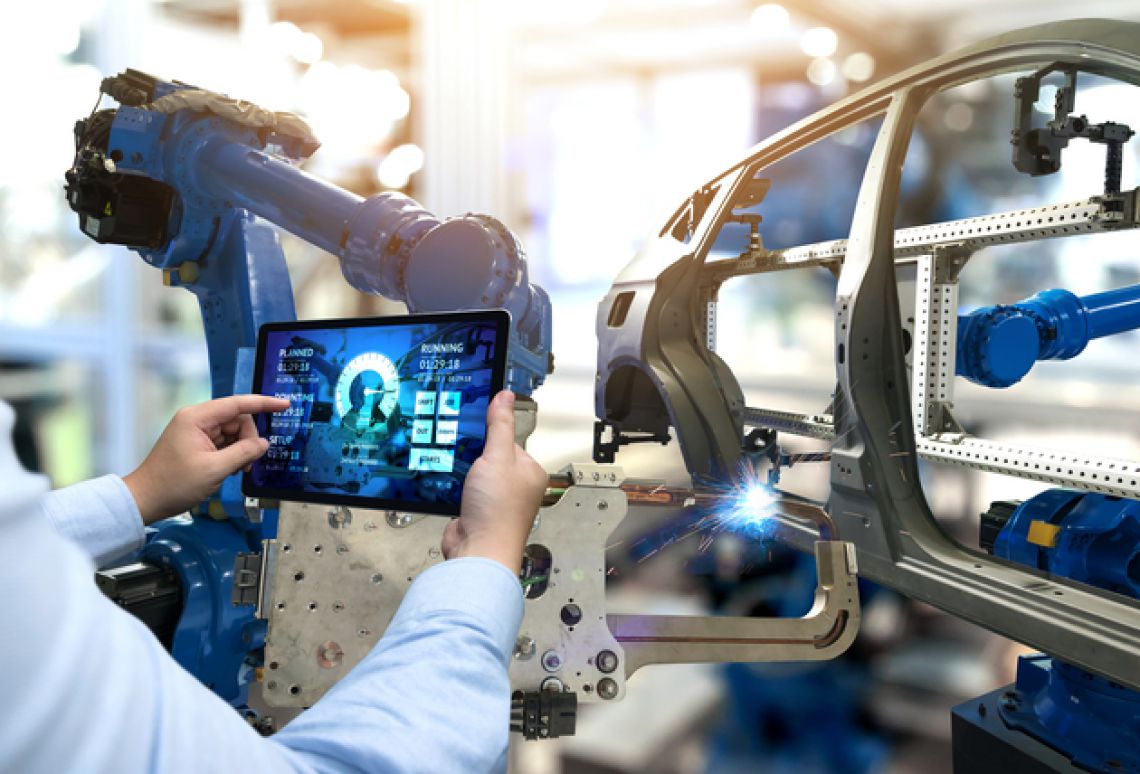Manufacturing has a long history of relying on automation for productivity and efficiency improvements. Artificial intelligence (AI) has had a significant impact on the manufacturing sector, revolutionizing various aspects of the industry. From the automation of repetitive tasks to the optimisation of production processes, artificial intelligence has proven to be a valuable tool for manufacturers in their quest for efficiency and savings.
Here are some of the effects of AI on manufacturing:
1. Automation and Robotics:
AI technologies have enabled automation in manufacturing processes. Robots equipped with AI capabilities can perform repetitive tasks with precision, speed, and efficiency. This has led to increased productivity, reduced human error, and improved overall quality of products.
2. Predictive Maintenance:
AI can analyze vast amounts of data collected from sensors and machines to predict equipment failures and schedule maintenance proactively. By detecting potential issues before they cause major breakdowns, AI helps minimize downtime and optimize maintenance schedules, resulting in cost savings for manufacturers.
3. Quality Control and Inspection:
AI-powered vision systems can inspect products for defects and anomalies more accurately than human inspectors. Computer vision algorithms can quickly analyze images or video streams to identify defects, ensuring consistent quality throughout the production process.
4. Supply Chain Optimization:
AI can optimize supply chain operations by analyzing large amounts of data and making accurate demand forecasts. It can help manufacturers optimize inventory management, reduce costs, and enhance logistics efficiency by predicting demand patterns, optimizing routes, and managing inventory levels effectively.
5. Enhanced Product Design and Development:
AI technologies like generative design algorithms can assist in creating innovative product designs. By exploring numerous design options and analyzing various parameters, AI can help optimize designs for factors such as performance, materials, and manufacturability, leading to improved products and reduced development time.
6. Resource and Energy Efficiency:
AI can help optimize energy usage in manufacturing processes. By analyzing data from sensors and monitoring energy consumption, AI systems can identify opportunities for energy efficiency improvements, leading to reduced environmental impact and cost savings.
7. Worker Safety:
AI-powered robots and cobots (collaborative robots) can work alongside human workers, handling hazardous or physically demanding tasks. This improves worker safety by reducing the risk of accidents and repetitive strain injuries.
8. Decision Support Systems:
AI can provide real-time data analytics and decision support for manufacturing managers. By analyzing vast amounts of data, AI systems can identify patterns, trends, and anomalies, enabling managers to make data-driven decisions for process optimization, resource allocation, and strategic planning.
Final Words
Overall, the integration of AI in manufacturing has the potential to increase productivity, improve product quality, optimize processes, and reduce costs. However, it may also bring challenges such as the need for reskilling the workforce, addressing ethical considerations, and ensuring data security and privacy in the manufacturing environment.
Do you wish to bring some automation flavor into your system? Then, Velcode Solutions can help. Contact us at +91-1145694931 , +91-9310905611 or can drop a mail to our sales team at sales@velcodesolutions.com.

